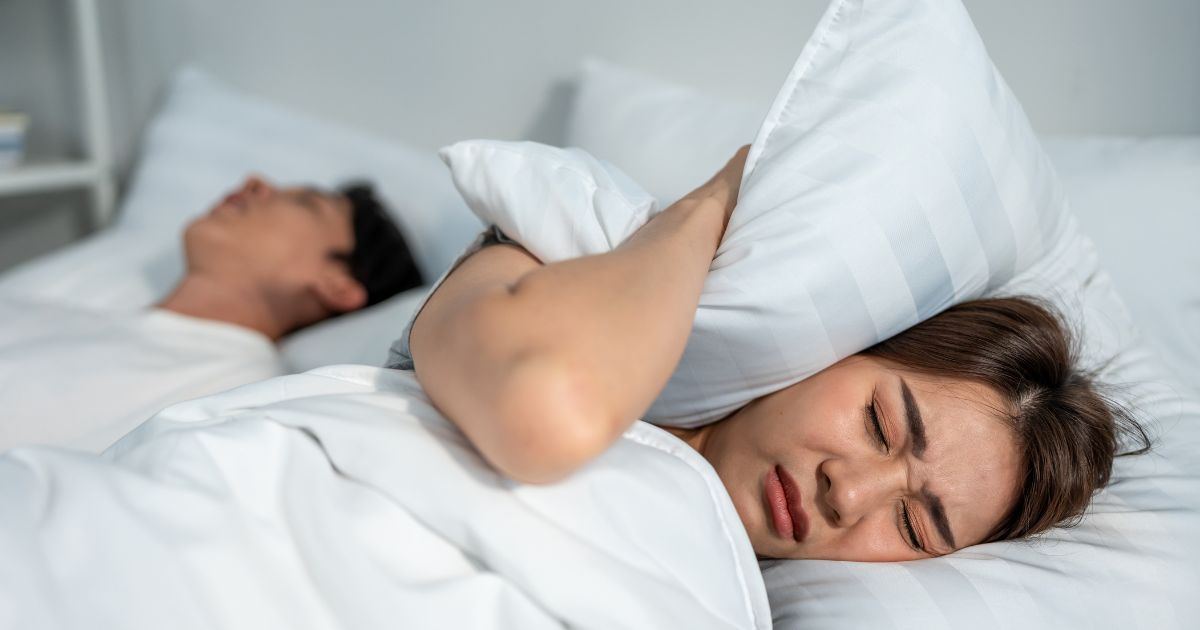
Is Your Oral Health Affecting Your Sleep Quality?
Struggling to get a good night’s sleep? The root cause could be closer than you think—even right inside your mouth. Poor oral health is often an overlooked factor in sleep disturbances. Here’s how your dental well-being might be affecting your sleep and what you can do about it.
The Connection Between Oral Health and Sleep
Good oral health impacts more than just your teeth and gums; it can also be a significant factor in achieving restful sleep. Issues like tooth pain, snoring, jaw disorders, or even nighttime teeth grinding can disrupt your sleep without you realising it.
How Snoring Affects Sleep Quality
If you or your partner snores loudly, it can significantly impact sleep quality for both of you. Snoring occurs when air cannot flow freely through the nose and throat during sleep, causing the surrounding tissues to vibrate. This not only disrupts the snorer’s sleep cycle but can also prevent bed partners from getting adequate rest.
Snoring might seem like a minor nuisance, but it can lead to daytime fatigue, irritability, and concentration problems. Over time, persistent poor sleep due to snoring can contribute to more serious health issues.
The Oral Connection to Snoring
Many people don’t realise that dental professionals can help address snoring issues. Factors that contribute to snoring include:
- The position of your jaw during sleep
- The relaxation of muscles in your mouth and throat
- The shape and size of your oral structures
- Dental Solutions for Snoring
While some people associate snoring treatments with uncomfortable devices, dental professionals offer more comfortable alternatives. We’re proud to offer patients custom-fit oral devices designed to gently reposition your jaw while you sleep. This slight movement helps to keep your airway open, reducing vibration of tissues and minimising snoring.
The process is easy, efficient, and effective. These oral appliances are:
- Custom-made for your mouth
- Comfortable to wear throughout the night
- Easy to care for and maintain
- Non-invasive and simple to use
How Can Dental Care Improve Your Sleep?
Understanding Root Causes
While oral appliances can effectively address symptoms like snoring and teeth grinding, a holistic approach also considers underlying factors that may contribute to these issues:
- Airway Development: The structure and development of your airway passages can significantly impact breathing during sleep. Sometimes, these issues begin in childhood with factors like tongue positioning, breathing habits, and facial development.
- Nutritional Considerations: Certain dietary patterns, food sensitivities, or nutritional deficiencies (particularly magnesium) may contribute to muscle tension and teeth grinding. Anti-inflammatory foods and proper hydration can support healthy sleep patterns.
- Stress and Nervous System Balance: Chronic stress often manifests as teeth grinding (bruxism) during sleep. Addressing this root cause through stress-management techniques can complement oral appliance therapy.
Complementary Approaches
For truly restorative sleep, consider these holistic practices alongside dental interventions:
- Optimizing sleeping position (side sleeping often reduces snoring)
- Creating a sleep sanctuary free from electronic devices and excess light
- Establishing a calming bedtime ritual to signal your body it’s time for rest
- Breathing exercises or meditation to activate the parasympathetic nervous system
- Avoiding alcohol and heavy meals close to bedtime
By addressing both the oral manifestations and underlying causes of sleep disturbances, we can work together to achieve deeper, more restorative sleep naturally.
Ready for a Good Night’s Sleep?
Don’t let oral health issues rob you of precious sleep. Book an appointment with us today and take the first step toward better sleep and better health. We look forward to seeing you in the practice soon. Here’s to closing your eyes with a smile!
